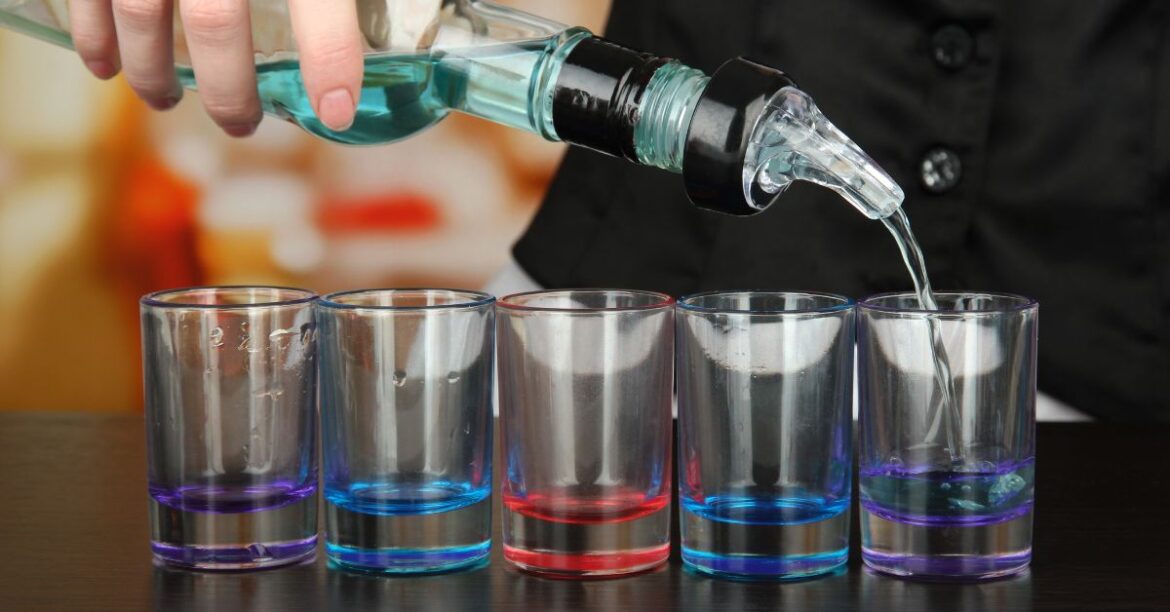Many people wonder, “Can you mix alcohol and peroxide?” The combination of these two common household substances is frequently used in various cleaning, disinfecting, and first aid routines. However, not everyone is aware of the potential risks or proper applications. This article will explore the safety, risks, and uses of mixing alcohol with peroxide, helping you make an informed decision next time you’re reaching for these items. We’ll also address common questions about whether this combination is effective or dangerous.
Can You Mix Alcohol and Peroxide? Understanding the Basics
While both alcohol and hydrogen peroxide have disinfecting properties, mixing them isn’t always the best idea. In some cases, combining these substances can result in a chemical reaction that could reduce their effectiveness or even pose risks. Let’s dive into why mixing alcohol and peroxide can be both helpful and harmful.
What Happens When You Mix Alcohol and Peroxide?
When you mix alcohol and peroxide, a chemical reaction can occur that reduces the effectiveness of both substances. Alcohol, typically isopropyl alcohol, is a solvent and antiseptic, while hydrogen peroxide is an oxidizing agent used for disinfecting. Combining them can cause the peroxide to lose its potency, making it less effective as a disinfectant. Additionally, mixing these substances may create harmful fumes that can irritate the respiratory system or eyes. The reaction could also lead to skin irritation or burns if applied directly. Though both are commonly used for cleaning and disinfecting, it’s best to use them separately for optimal results. Always follow safety guidelines when handling these chemicals to avoid risks.
When is it Safe to Mix Alcohol and Peroxide?
There are certain situations when combining alcohol and peroxide may be beneficial, but they need to be used in specific proportions. Here’s a breakdown of when this combination might be effective.
Cleaning and Disinfecting:
Alcohol and hydrogen peroxide can be used separately for cleaning and disinfecting. Alcohol works well for sanitizing surfaces and killing germs, while peroxide is effective against tougher bacteria and viruses. For optimal results, use alcohol for general surface cleaning and peroxide for disinfecting. Always ensure proper dilution to avoid damage or irritation.
Wound Care:
Using alcohol and hydrogen peroxide for wound care is not recommended by many healthcare professionals. While both have antiseptic properties, the combination can irritate the skin, delay healing, and cause more harm than good. It’s better to use each substance individually and opt for gentler, more effective wound care products to promote proper healing and avoid skin damage.
The Risks of Mixing Alcohol and Hydrogen Peroxide
While it might seem like a good idea to mix these two substances, there are potential dangers to consider. Below are some of the risks:
Reduced Effectiveness
Mixing alcohol and hydrogen peroxide can reduce their effectiveness. When combined, the chemical properties of both substances can cancel each other out, making them less effective for cleaning or disinfecting. Instead of achieving optimal results, the mixture may weaken their germ-killing abilities, rendering them less useful than when used separately for specific purposes.
Release of Harmful Fumes
Mixing Isopropyl Alcohol Burn and hydrogen peroxide can release harmful fumes, posing a risk to your respiratory health. The chemical reaction between the two substances may produce irritating vapors, which can cause coughing, eye irritation, or difficulty breathing. It’s important to avoid mixing them in confined spaces and always use them separately for safety and effective results.
Skin and Eye Irritation
Mixing alcohol and hydrogen peroxide can lead to skin and eye irritation. The combination may cause redness, burning sensations, or even chemical burns when applied directly. Prolonged exposure to the mixture can worsen these effects, especially on sensitive skin. To avoid irritation, it’s safer to use each substance separately and follow proper safety guidelines.
Can You Use Alcohol and Peroxide for Cleaning?
Yes, alcohol and peroxide can be used for cleaning, but they need to be used appropriately. Here’s how you can effectively clean with these substances:
Glass and Mirrors:
A mixture of alcohol and hydrogen peroxide can effectively clean glass and mirrors. Alcohol helps remove fingerprints and grease, while hydrogen peroxide adds disinfecting power. This combination can leave surfaces streak-free and sanitized. However, it’s important to dilute the mixture properly to avoid damaging delicate surfaces and to ensure optimal cleaning and shine.
Countertops and Hard Surfaces:
Alcohol and hydrogen peroxide can be used to clean countertops and hard surfaces effectively. Alcohol sanitizes and removes grease, while hydrogen peroxide helps eliminate bacteria and germs. This combination works well for disinfecting kitchen counters and other high-touch areas. However, ensure proper dilution to avoid damaging surfaces or creating harmful fumes during use.
FAQs
Q: Is it safe to mix alcohol and hydrogen peroxide for wound care?
A: No, mixing these substances for wound care is not recommended. While both are antiseptics, the combination can irritate the skin and delay healing.
Q: Can alcohol and peroxide be used for surface cleaning?
A: Yes, but it’s best to use them separately. Alcohol is effective for cleaning surfaces, and hydrogen peroxide works well for tougher disinfecting tasks.
Q: What happens if I accidentally mix alcohol and hydrogen peroxide?
A: If mixed, alcohol and hydrogen peroxide may produce less effective disinfecting results, and you may also expose yourself to harmful fumes.
Q: Can I use hydrogen peroxide and alcohol in a DIY cleaning solution?
A: Yes, but make sure to use them in the correct proportions and avoid mixing too much of each substance. It’s often better to use them individually for optimal results.
Q: Can I mix alcohol and peroxide for cleaning my bathroom?
A: For general cleaning, it’s better to use these substances separately. Alcohol can clean mirrors and glass, while hydrogen peroxide works better for mold and mildew removal.
Conclusion
In conclusion, while it’s possible to mix alcohol and hydrogen peroxide, it’s not always the best option for most tasks. The mixture can reduce the individual effectiveness of each substance and potentially create harmful by-products. If you need to disinfect, it’s generally better to use alcohol and peroxide separately. For cleaning, you can use peroxide for tough germs and alcohol for surface disinfection, depending on the task at hand. Always follow proper guidelines to ensure safe usage.




